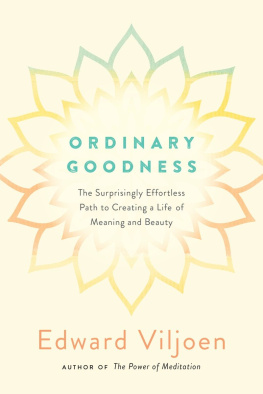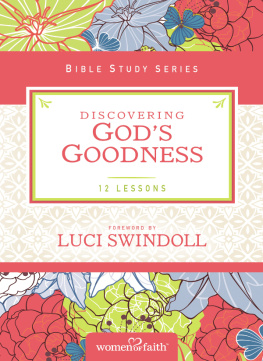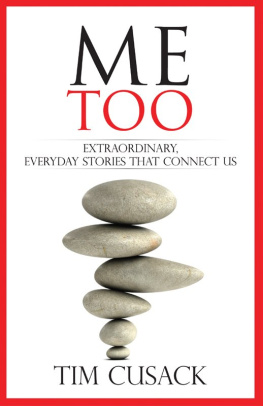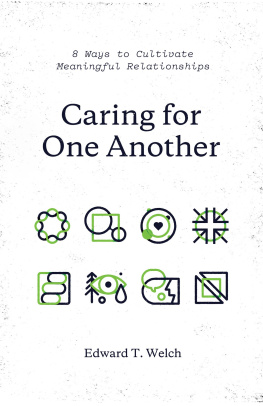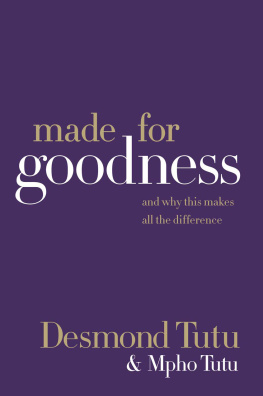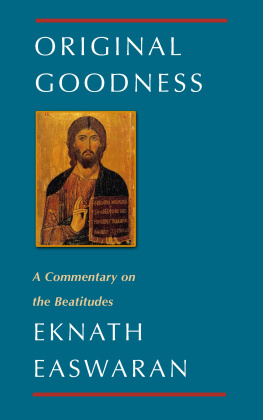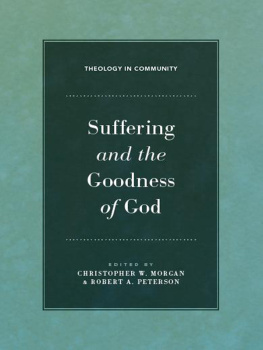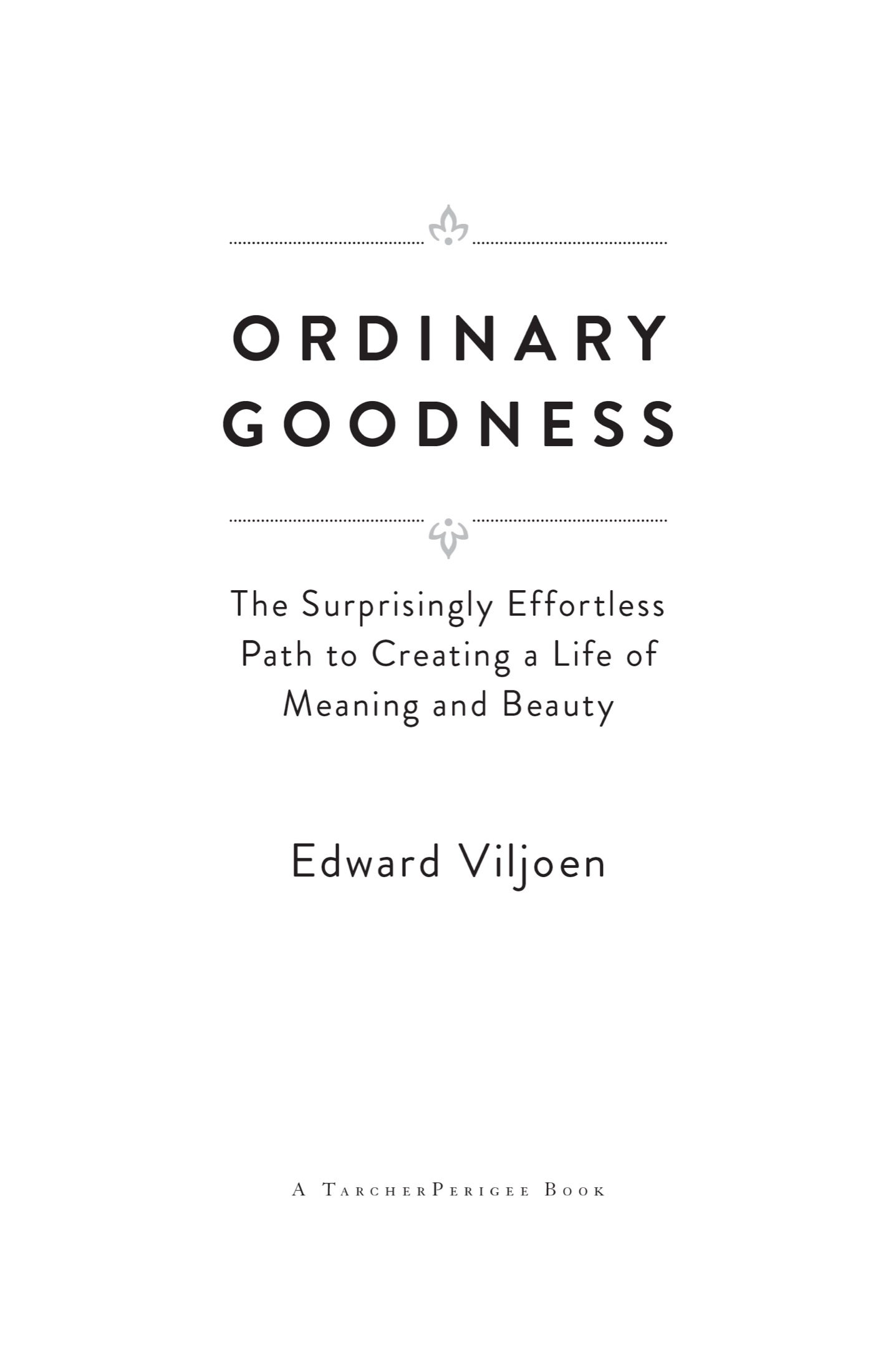
An imprint of Penguin Random House LLC
375 Hudson Street
New York, New York 10014
Copyright 2017 by Edward Viljoen
Penguin supports copyright. Copyright fuels creativity, encourages diverse voices, promotes free speech, and creates a vibrant culture. Thank you for buying an authorized edition of this book and for complying with copyright laws by not reproducing, scanning, or distributing any part of it in any form without permission. You are supporting writers and allowing Penguin to continue to publish books for every reader.
Tarcher and Perigee are registered trademarks, and the colophon is a trademark of Penguin Random House LLC.
Most TarcherPerigee books are available at special quantity discounts for bulk purchase for sales promotions, premiums, fund-raising, and educational needs. Special books or book excerpts also can be created to fit specific needs. For details, write: SpecialMarkets@penguinrandomhouse.com.
Ebook ISBN: 9780399183928
Library of Congress Cataloging-in-Publication Data
Names: Viljoen, Edward, author.
Title: Ordinary goodness : the surprisingly effortless path to creating a life of meaning and beauty / Edward Viljoen.
Description: New York : TarcherPerigee, [2017]
Identifiers: LCCN 2016029449 | ISBN 9780399183911 (pbk.)
Subjects: LCSH: Conduct of life. | Good and evil. | Spiritual life.
Classification: LCC BJ1589 .V55 2017 | DDC 170/.44dc23
While the author has made every effort to provide accurate Internet addresses at the time of publication, neither the publisher nor the author assumes any responsibility for errors or for changes that occur after publication. Further, the publisher does not have any control over and does not assume any responsibility for author or third-party Web sites or their content.
Cover design: Jess Morphew
Cover image: ColorJuli / Shutterstock
Version_1
Introduction
T HERE IS A light in the soul, Meister Eckhart wrotea light that is uncreated and that cannot be created. I call that light ordinary goodness, and I believe that the ultimate goal of life, if there is such a thing, is to express that goodness by letting it come alive in us. However, goodness, like love, makes us exposed and vulnerable. Yet we can no more withdraw from our natural-born goodness than we can withdraw from our inclination to lovenot if we expect to live a life of meaning and worth.
C. S. Lewis, in The Four Loves, warns that
To love at all is to be vulnerable. Love anything and your heart will be wrung and possibly broken. If you want to make sure of keeping it intact, you must give it to no one, not even an animal. Wrap it carefully round with hobbies and little luxuries; avoid all entanglements. Lock it up safe in the casket or coffin of your selfishness. But in that casket, safe, dark, motionless, airless, it will change. It will not be broken; it will become unbreakable, impenetrable, and irredeemable. To love is to be vulnerable.
Goodness is everything from love, gentle kindness, compassion, and generosity to moral distinction or virtue. It is strength and excellence and sometimes, as we will see later, a synonym for the Divine. Most importantly, I believe, goodness is already present in us, like a dormant seed waiting for the right circumstances to germinate and then take root. Moreover, when it does, it has immense power to inspire and instill hope, to help and nurture. When we do not allow it to spring forth, the consequences are worrisomefor a life not fueled by ordinary goodness must draw its strength from somewhere else. And the options are grim.
I use the word ordinary to describe goodness, both in the sense of something unexceptionalof no particular interestas well as in the sense of something so normal that it goes easily unnoticed. Mainstream news services report on lifes spectacular and alarming events, the horrific and the surprising, while all the time regular people everywhere continue to give expression to enormous amounts of ordinary goodness when they awkwardly love their child, quietly recover from a setback, take out the trash for a neighbor even though they are pressed for time, show up uncomfortably at an acquaintances mothers memorial, or donate to a cause when personal resources are lowall without fanfare or special announcement. Goodness is so ordinary that it is not newsworthy, as some news services that cover good news have discovered. Their focus on goodness falls into the background, drowned out by sensational stories of danger and wrongdoingthe type of stories that attract readers and, therefore, advertisers.
Viktoria Nekrasova, of the Russian-language online news service The City Reporter, tells on her Facebook page what happened when her agencys site attempted to feature positive angles on the stories in the daily stream for one day. It turned out that virtually nobody wants it, she wrote, noting that the site drew significantly fewer readers that day.
Why, then, the fascination in social media with puppies and cats, babies, selfies, random acts of kindness, and stories about love overcoming just about everything? Because ordinary goodness is not dead. It is just ordinary. For goodness to become fascinating, the habit of not noticing it must be interrupted. Goodness must be cherished and enjoyed, resolutely and mindfully. When we do that, we may begin an extraordinary journey of discovery on which attention to goodness inevitably leads to the expression of everyday kindness. And kindness, when nurtured, develops compassion. And compassion will bring us face-to-face with lifes paradoxes and contradictions, and that, in turn, will bring us back to the starting point of our journey: goodness, with a new question. Is goodness worth it? That is where faith comes in. Not faith of a religious kind, although that will work too, but faith in the sense of trusting what cannot be logically explained: our inclination to goodness, even though it gives very few guarantees and seems riddled with inconsistencies.
The Benefits of This Book
Ordinary Goodness consists of five parts. The first four are Ordinary Goodness, Ordinary Kindness, Ordinary Compassion, and Ordinary Faith. It offers stories and practices to illustrate how to explore and express these qualities more powerfully in life. The fifth part of this book shifts focus to finding your own faith by examining what you believe. In this last part, I share what I have come to believe, not as a way of explaining the meaning of life, but as an illustration of what I think all people ought to find for themselves. Throughout this book, you will find suggestions for your application, titled practice.
Meister Eckhart wrote that there is something in the soul so akin to the Divine that it is one with the Divine, and this something has nothing in common with anything created. Your goodness may be ordinary, yet it exists in you in a unique and unrepeatable way. It is to that ordinary state of goodness in all people that I dedicate this book. That something nudges and prods us to live in sync with it, and it will not let us rest when we ignore it.

